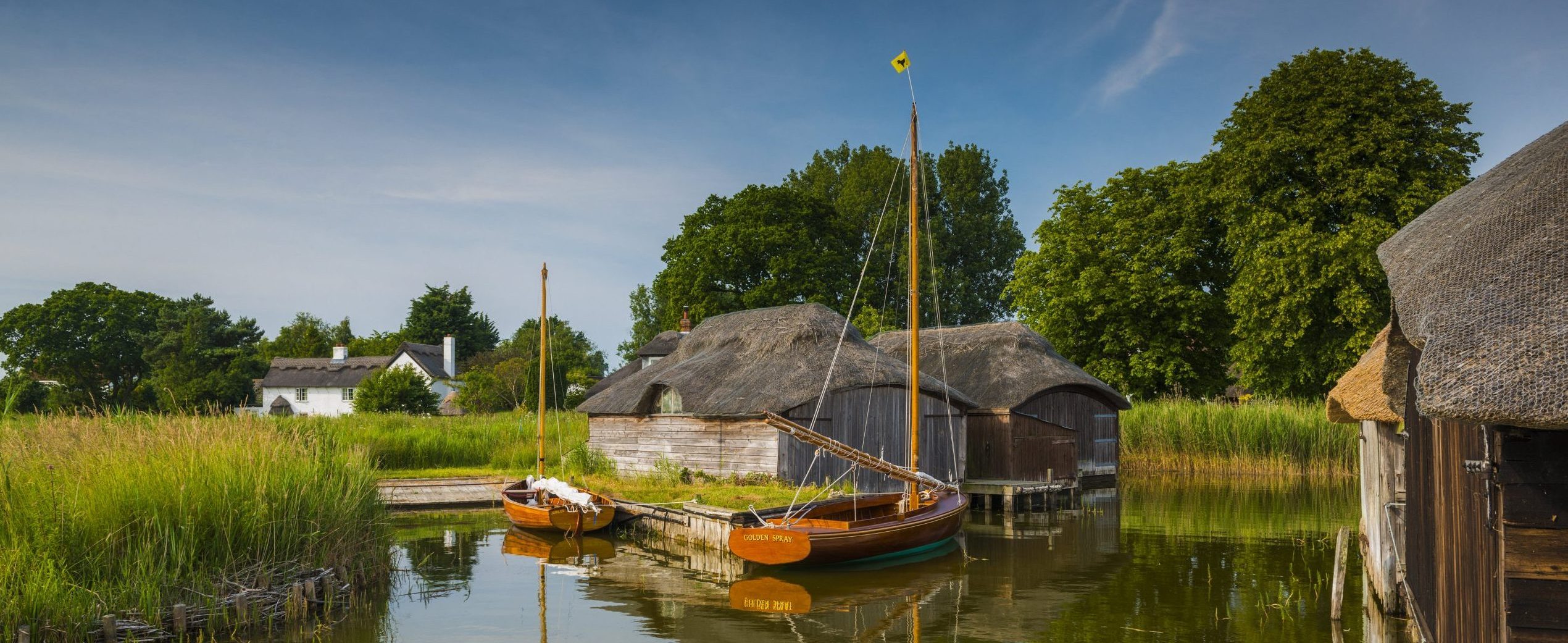Norfolk: From coast to countryside
Where Swallows and Amazons meet lambs and pheasants. Sally Coffey brings you the best of rural Norfolk
To the east of Cambridgeshire and the north of Suffolk, Norfolk is a county that has traditionally relied as much upon its fishing industry as it has agriculture, jutting out in the North Sea as it does like the knobbly shoulder of the southern half of England.
It was here some 950,000 years ago that the first Britons arrived on these shores, setting up home near the village of Happisburgh in the north-east of the county, though understandably knowledge of these early people is scant.
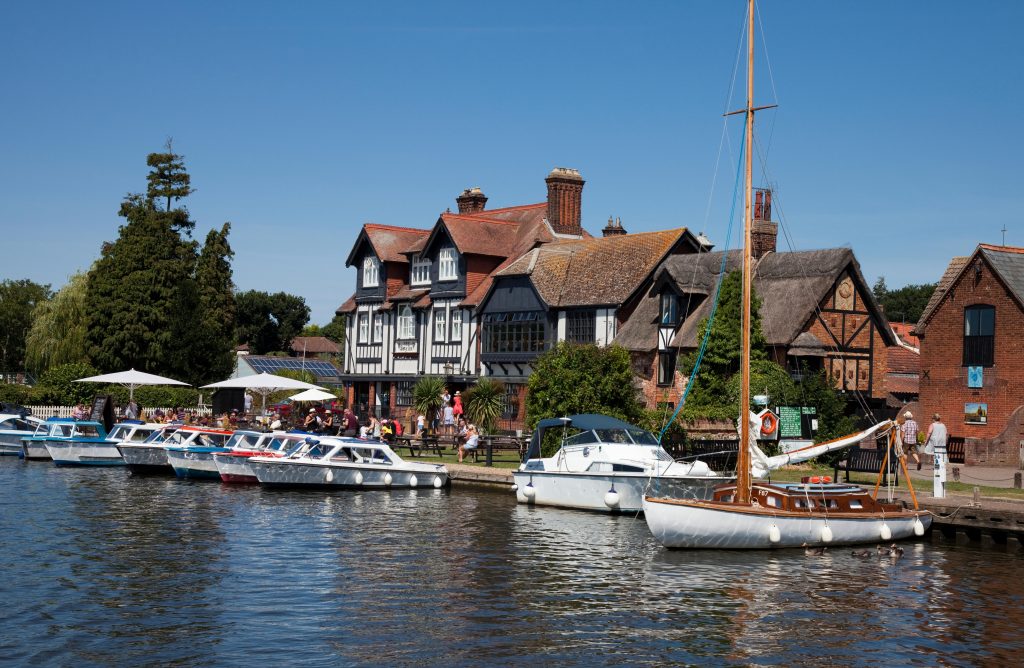
The name Norfolk was coined by much later settlers, the Anglo-Saxons, and may have been a derivation of the words ‘Norse’ and ‘folk’ or have meant ‘northern people’, as at the time Norfolk was the northern part of the powerful Kingdom of East Anglia.
A region renowned for its low-lying land, where farming country meets the sea, Norfolk became England’s most productive agricultural region during medieval times, while its maritime heritage similarly stretches back centuries. Famously, Norfolk was also the birthplace of one Lord Nelson who grew up to be the most celebrated Admiral in the British Navy.
In modern times, Norfolk’s golden sandy beaches, windmills, big skies, pretty villages, rural charm, and generally much slower pace of life has made it something of a weekend or second-home spot for Londoners, and this has meant many restaurants, hotels, and tours have really had to up their game. Here’s how you can make the most of your time here.
The Norfolk Broads
One of the most famous parts of the region are ‘the Broads’, a national park made up of Britain’s largest protected wetland – a network of rivers and other waterways that provide vital habitats for lots of British birds. A quiet, unassuming corner of the county, the Broads were romanticised in the Swallows & Amazons series of books from author Arthur Ransome, in which a group of children go on swashbuckling adventures during the interwar years.
Today, the Broads have become a popular destination for holidaymakers who come to book self-drive day boats – ideal if you want to pull into one of the waterside pubs –, or to join one of the passenger cruises. Whichever you choose, keep an eye out for the abundance of birds and other wildlife as you go.
visitthebroads.co.uk; broadstours.co.uk
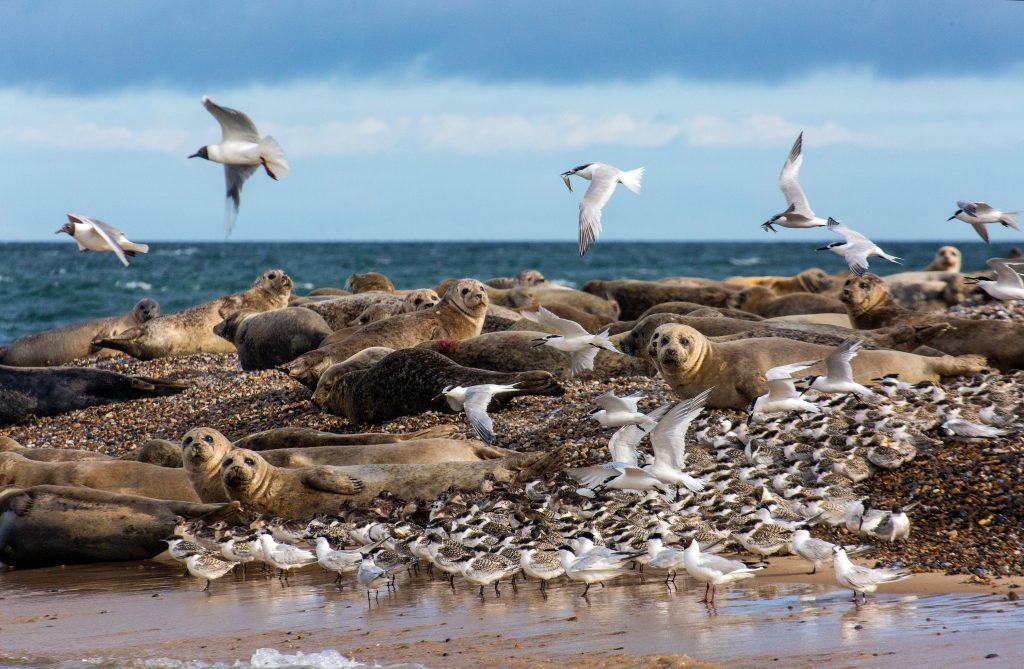
Nostalgic North Norfolk
If some wholesome fun is in order, then visit the lovely little village of Blakeney for some crabbing from the quay. Local shops stock everything you need (a line, bucket, and some bait), and if you’re not sure what you’re doing, just ask someone – there are always other families about who will be happy to help.
Blakeney is also where you can join one of the excellent boat tours out to nearby Blakeney Point to see the huge population of seals.
Nearby Cromer is also recommended for fishing from the pier (you’ll need an extra-long rod), fish and chips (No.1 Cromer is the best in the area, and one of the best in the UK), sea swims and sandcastle competitions. Plus, the Pavilion Theatre is the last-standing end-of-the-pier variety show in the whole of the UK.
Meanwhile Wells-next-the-Sea is the kind of coastal beach resort that time has forgotten and is a great place to watch sailing boats bob in the harbour or to try your luck in the amusement arcade.
visitnorthnorfolk.com; beansboattrips.co.uk
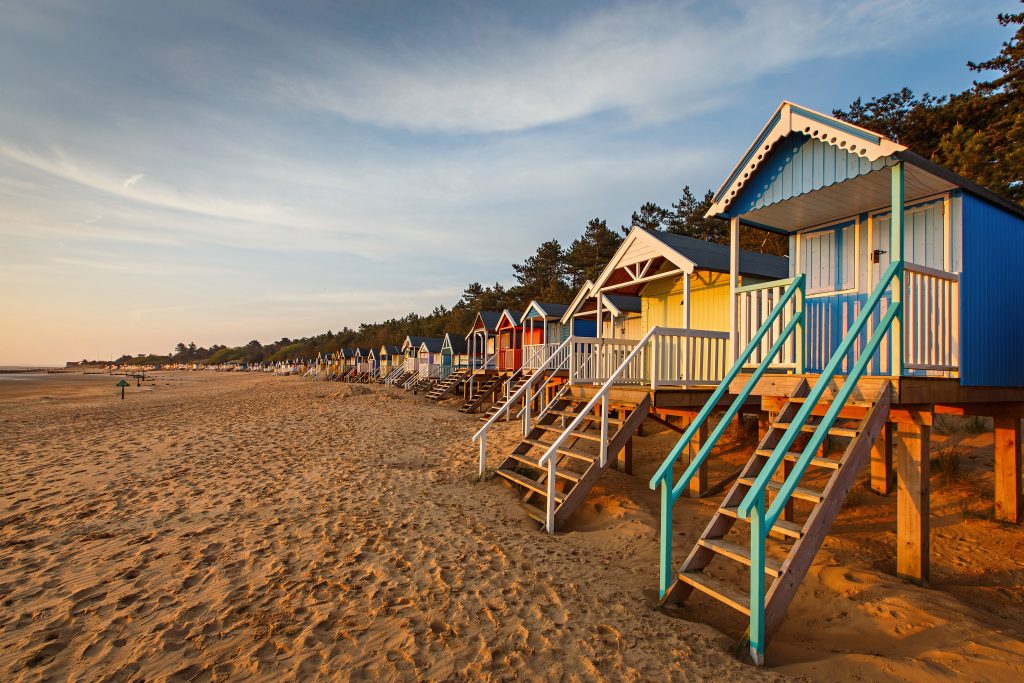
Take the Nelson trail
Lord Nelson was born in Burnham Thorpe, a little village where his father was the rector of All Saints’ Church. The rectory no longer stands (though a plaque pays homage to Nelson) but inside the church are lots of items charting Nelson’s achievements.
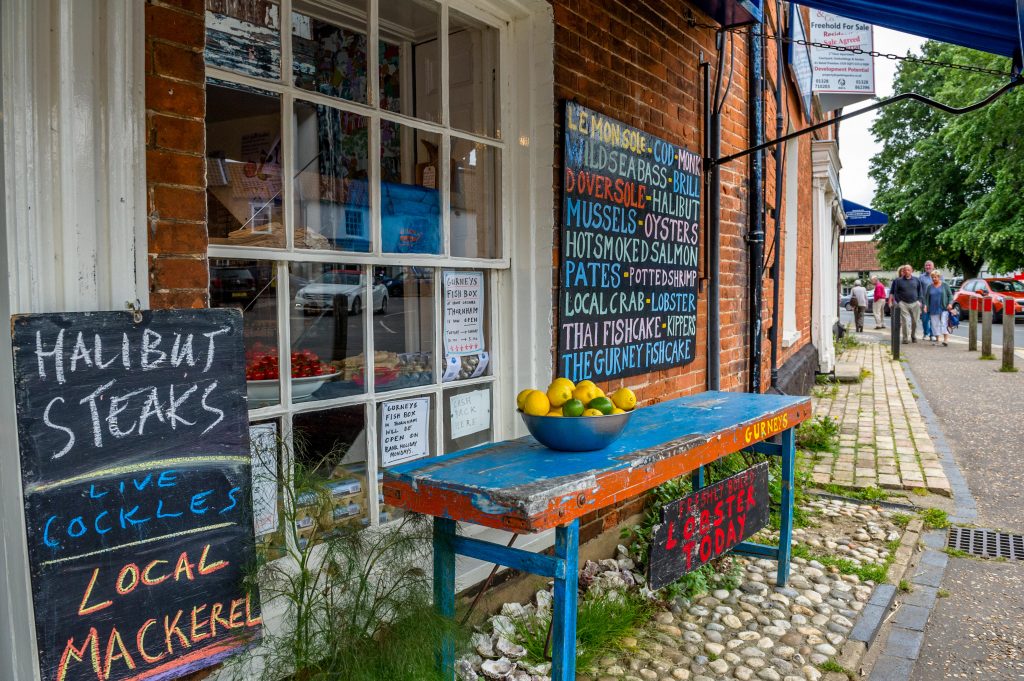
The nearby Plough Inn was Nelson’s local pub, which was renamed The Lord Nelson after the Battle of the Nile in 1798, after which declared Nelson declared: “I am myself a Norfolk man and glory in being so.”
Nearby Burnham Market, just half a mile away, is one of Norfolk’s most well-heeled towns, home to bookshops, giftshops, a butchery and a bakery, and is a lovely place to while away an hour or two.
You may also wish to visit Burnham over Staithe and Brancaster where a young Nelson learned to sail or the stately homes of Houghton Hall – built by Nelson’s great, great uncle Robert Walpole – and Wolterton Hall, a Georgian house owned by distant cousins on his mother’s side he was known to visit regularly.
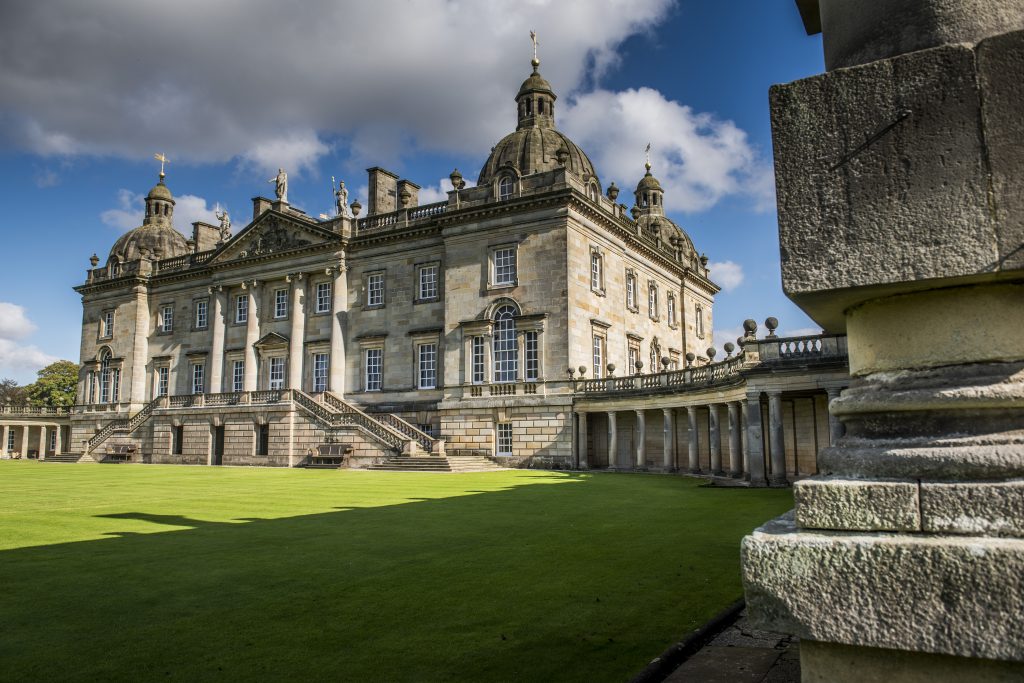
Discover a lost village
In a beautiful bucolic location, surrounded by farmland, you’ll find Godwick Hall, a smart Georgian house, which can be hired out for large gatherings, and which is set amid a 100-acre estate. When you happen upon it, it feels very much like a local secret, reached down a bumpy farming track, where pheasants shoot you displeasing looks for disturbing their peace and rabbits hop out of the way speedily.
It is even more extraordinary then when you discover the remains of a lost medieval village in its back garden.
Godwick is one of the best preserved of Norfolk’s ‘Lost Villages’ – settlements that were hastily abandoned for one reason or another – perhaps due to environmental changes or agricultural reasons.
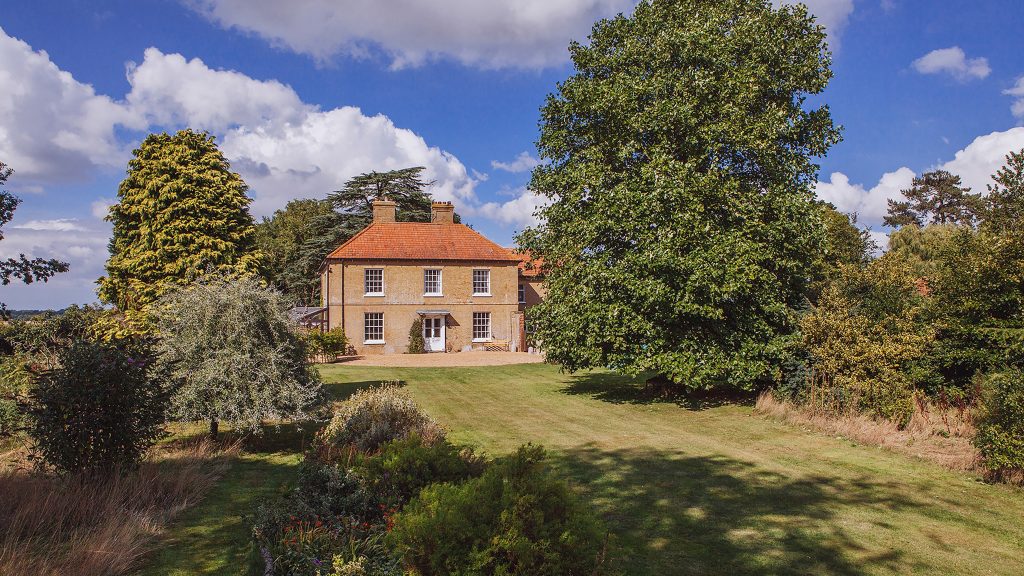
Thanks to a long history of livestock grazing, the outline of many of the village’s old buildings are still etched on the landscape while the ruins of an old church tower is a haunting reminder of what once was. Today, visitors can learn more about the village thanks to interpretation panels, while a stay on the Old Stables – a luxurious self-catering holiday home with huge rooms, high ceilings, and lovely farm views – you can see sheep and their lambs from the window – comes highly recommended. There are lots of modern touches, from a TV in the bathroom, to coffeemakers, huge murals on the walls, and fluffy dressing gowns and slippers. While the location is private, it places you very much in the heart of farming life, while also providing easy access to Norfolk’s coastal towns and villages.
Country pub perfection
If there is something Norfolk does exceedingly well, it’s pubs. At The Bell in Brisley (just a short drive from Godwick), you couldn’t ask for a warmer welcome. The ivy-clad red-brick exterior is instantly inviting, but then you step through to a wooden-floored wood-panelled room, with a gleaming bar and lots of cosy nooks, great food sourced locally from the land and sea, and staff for which nothing is too much. Plus, it has a darts board for those wishing to indulge in a traditional British pastime. Elsewhere, closer to Holkham Hall The Ostrich Inn is a typical village pub with rooms. The menu, which is prepared using fresh local ingredients every day is top notch, rooms feature beams, lots of vintage-style accessories and sparkling en suites. As this is a real local pub, you’re also bound to be able to pick the brains of some of the other punters over dinner for some real insider knowledge.
thebrisleybell.co.uk; theostrichinnnorfolk.co.uk
This is an extract, read the full feature in our October/November 2023 issue of Discover Britain, available to buy here from Friday 8 September.
Read more:

